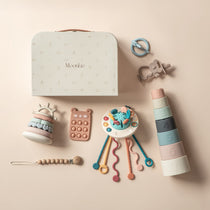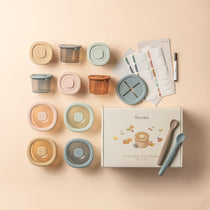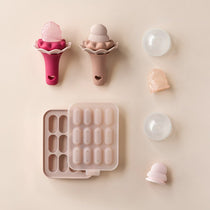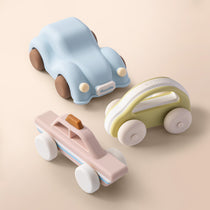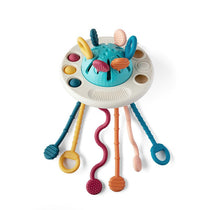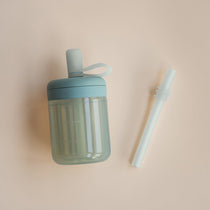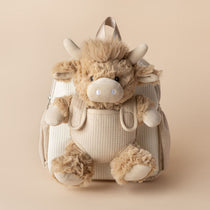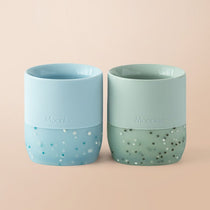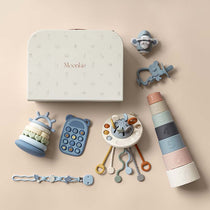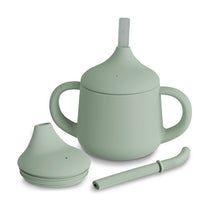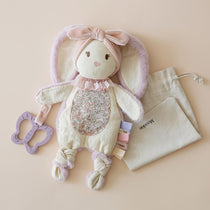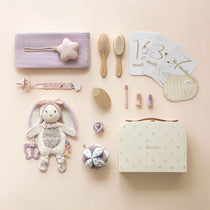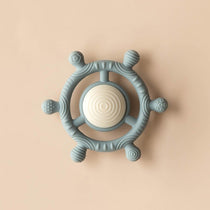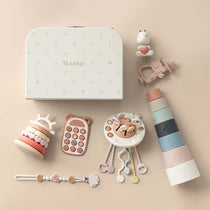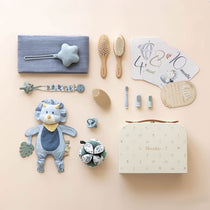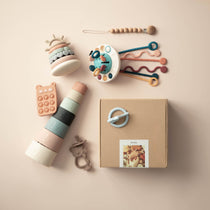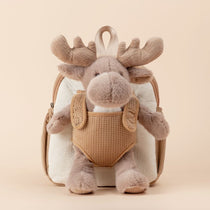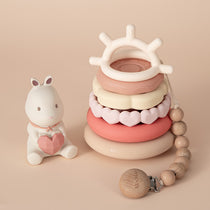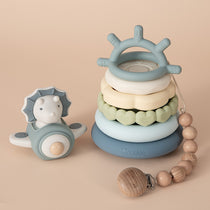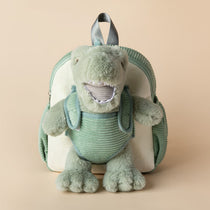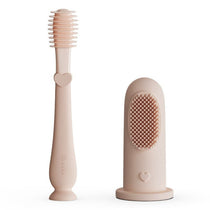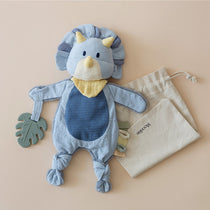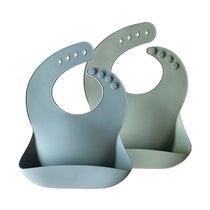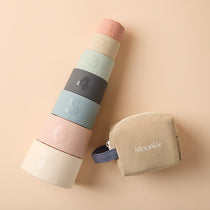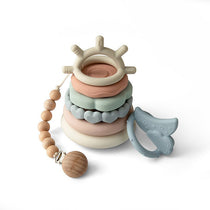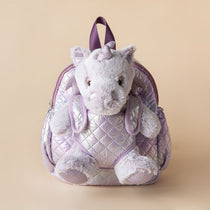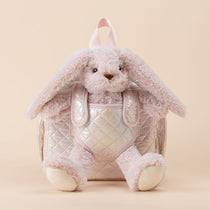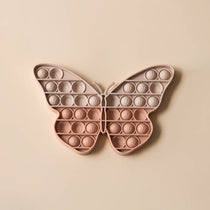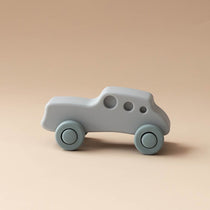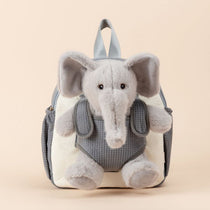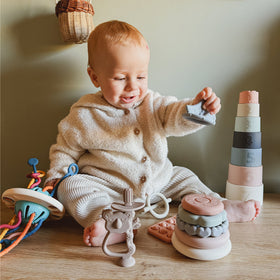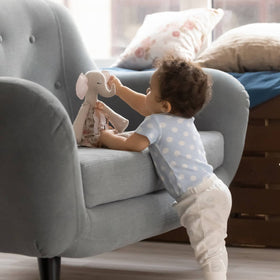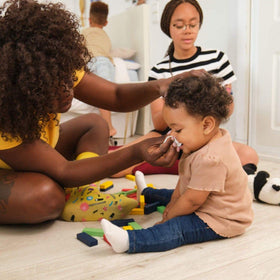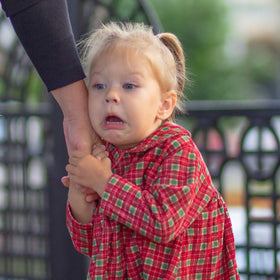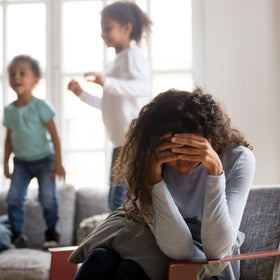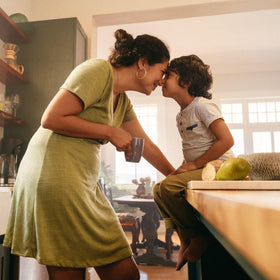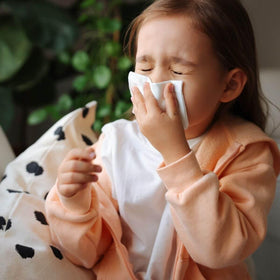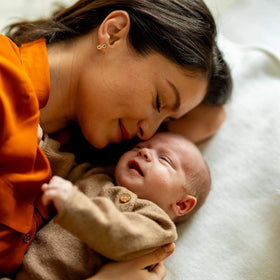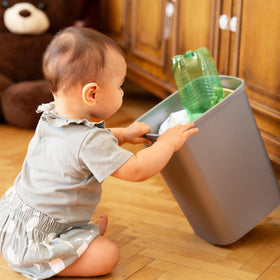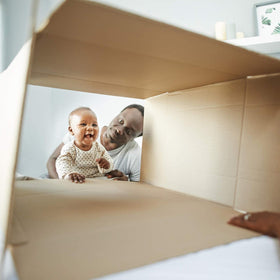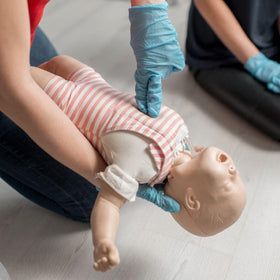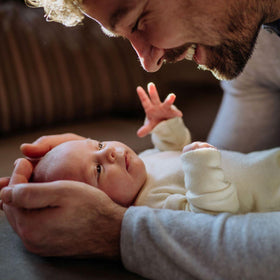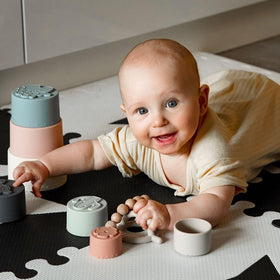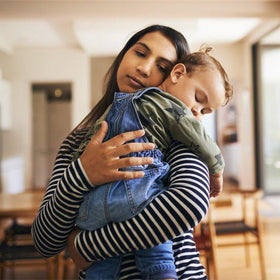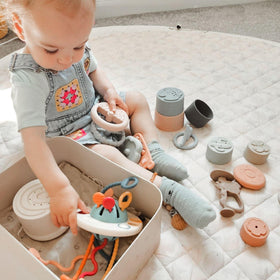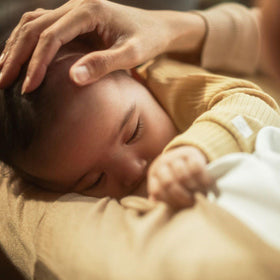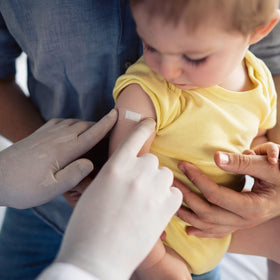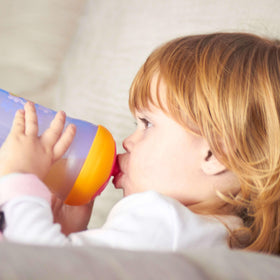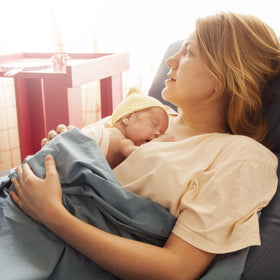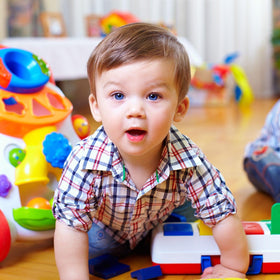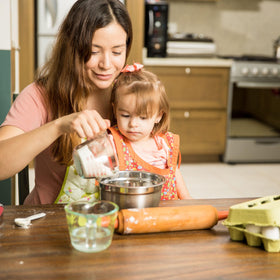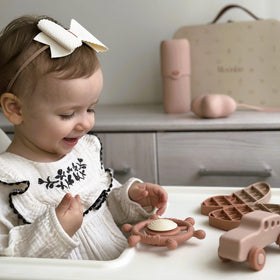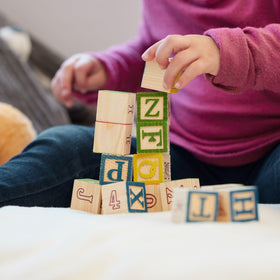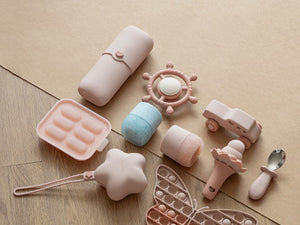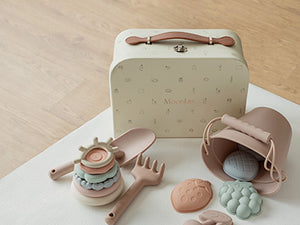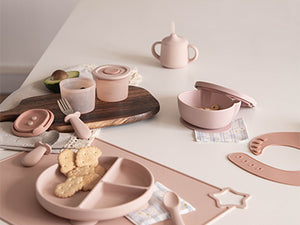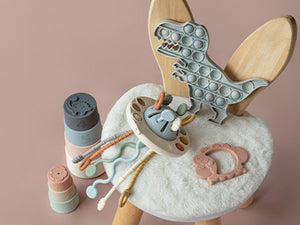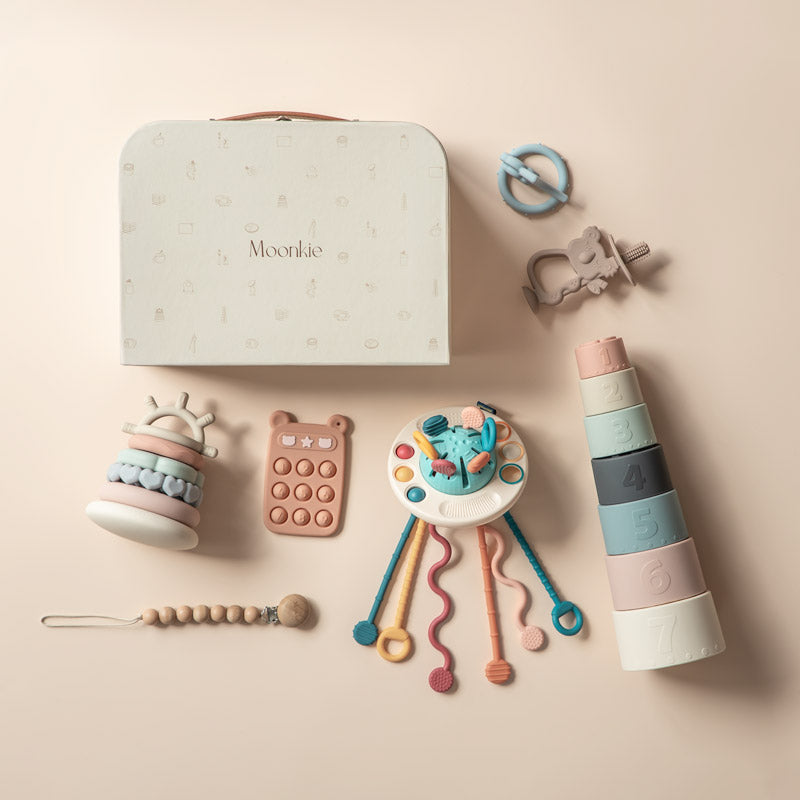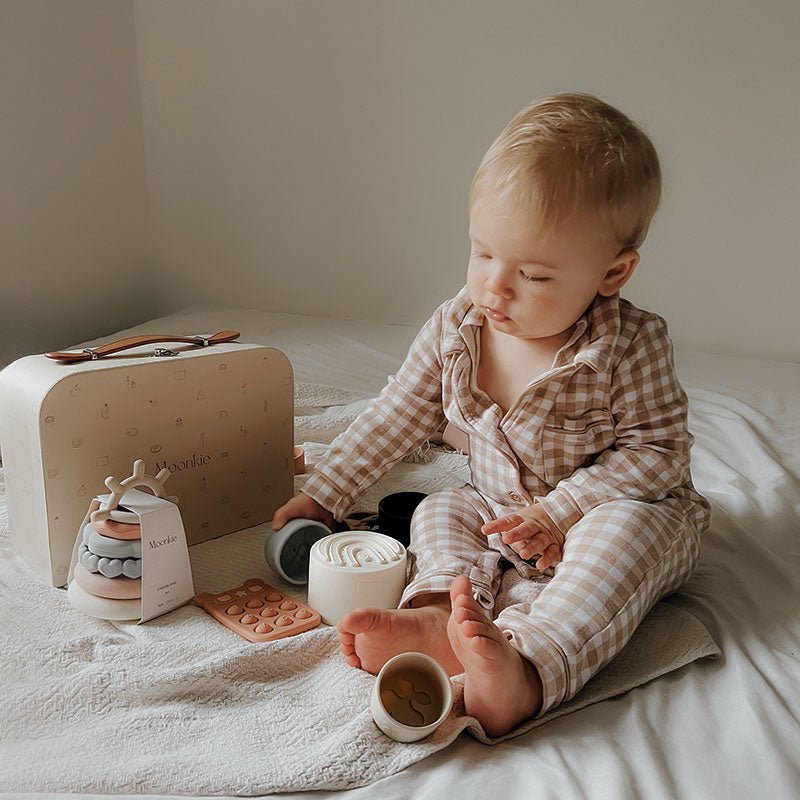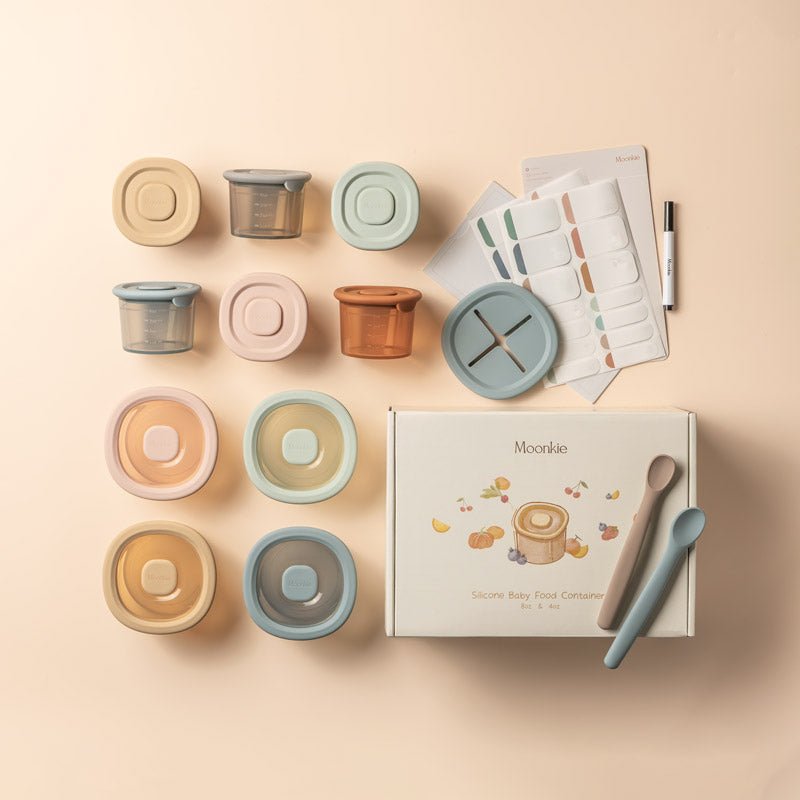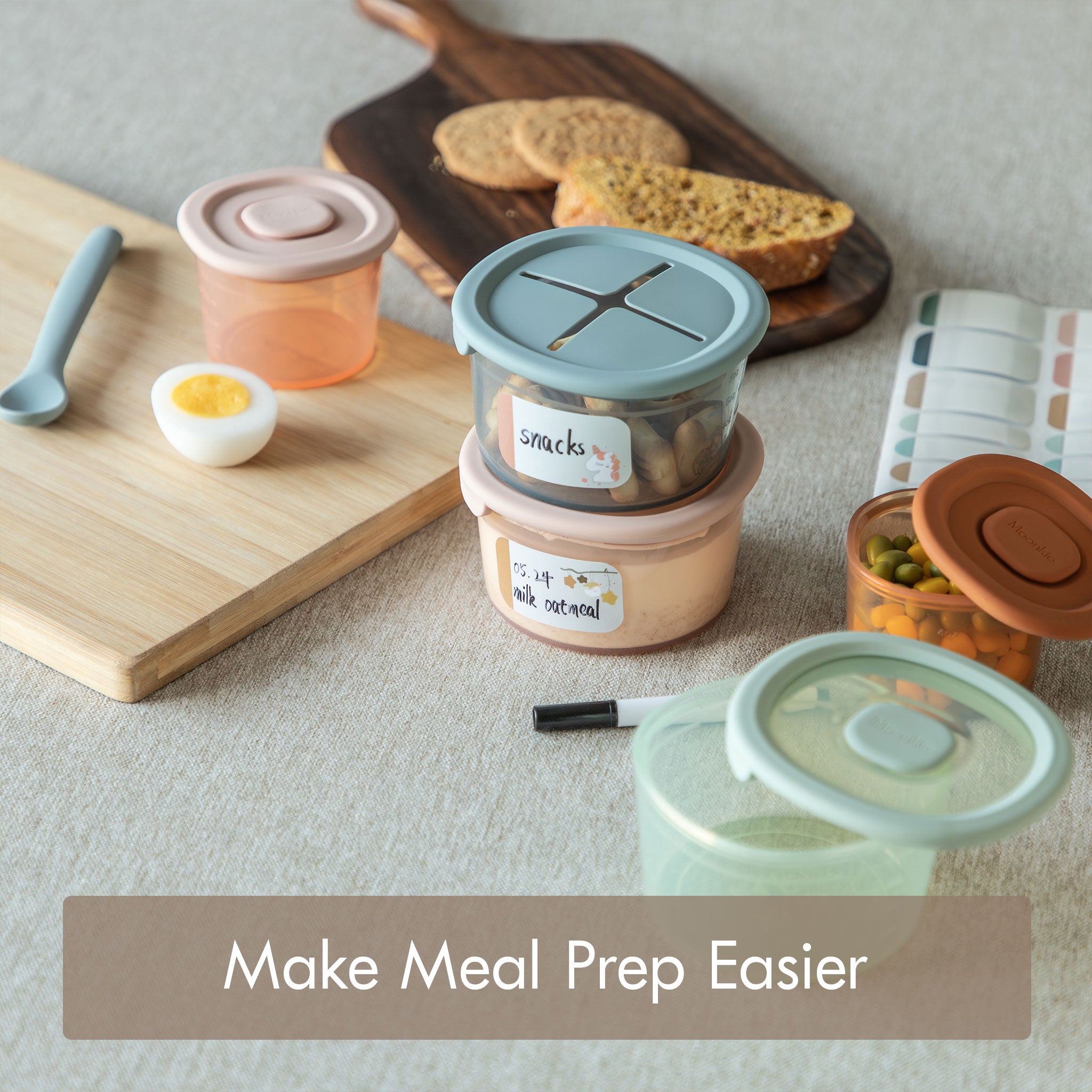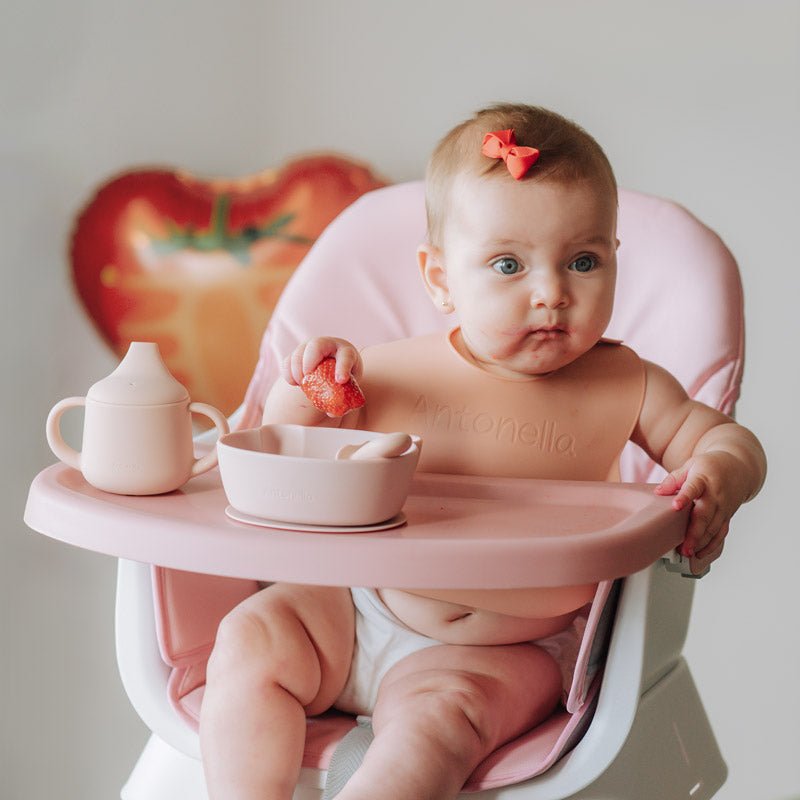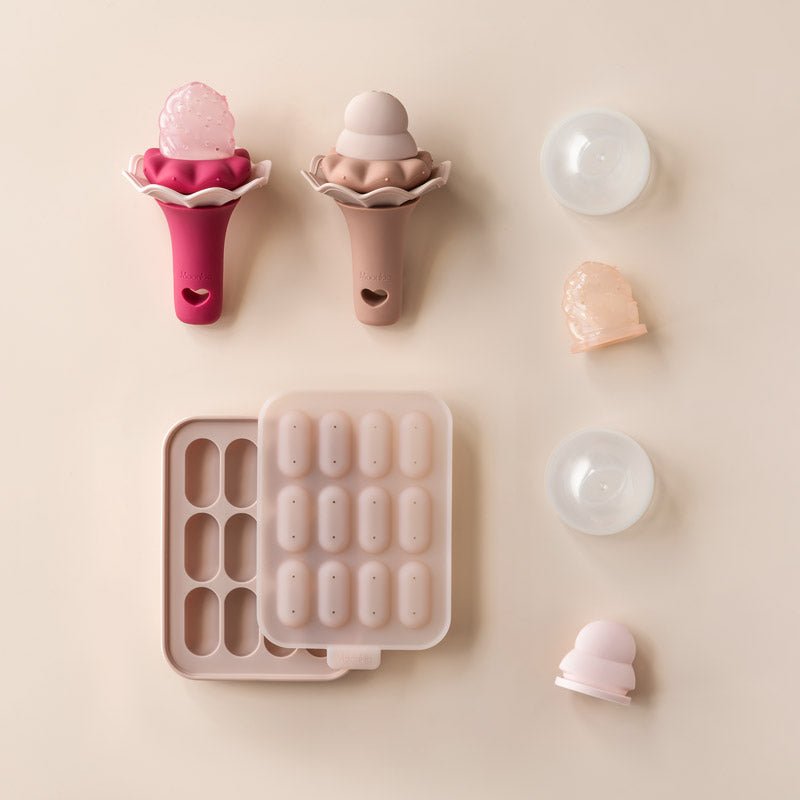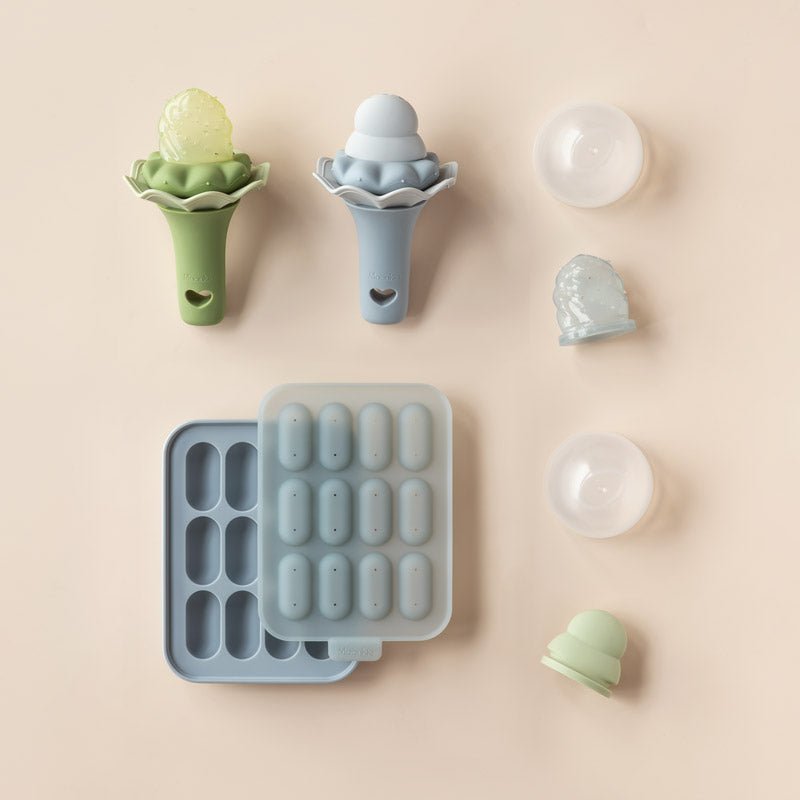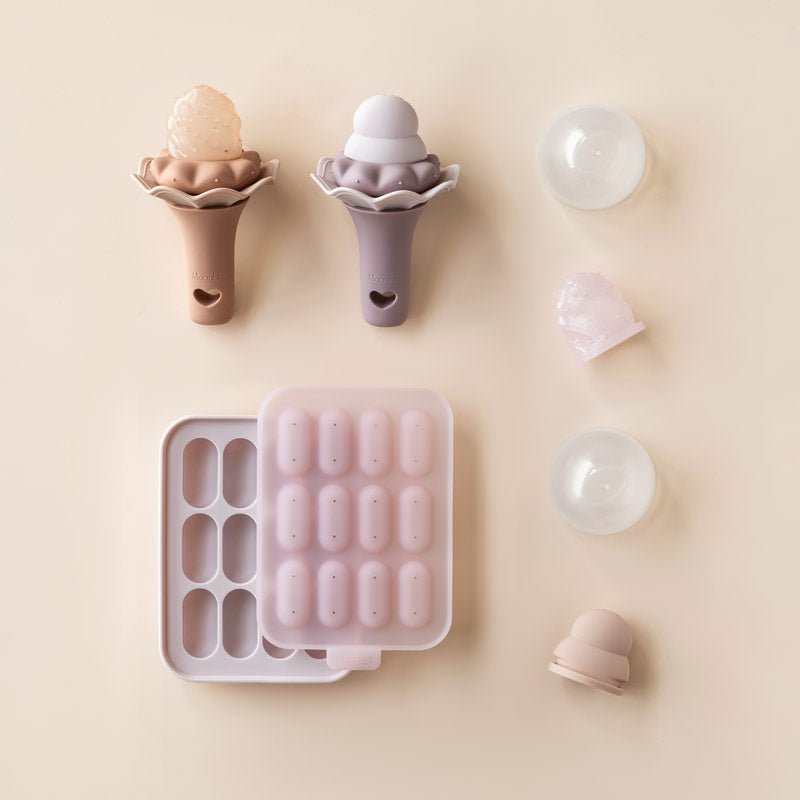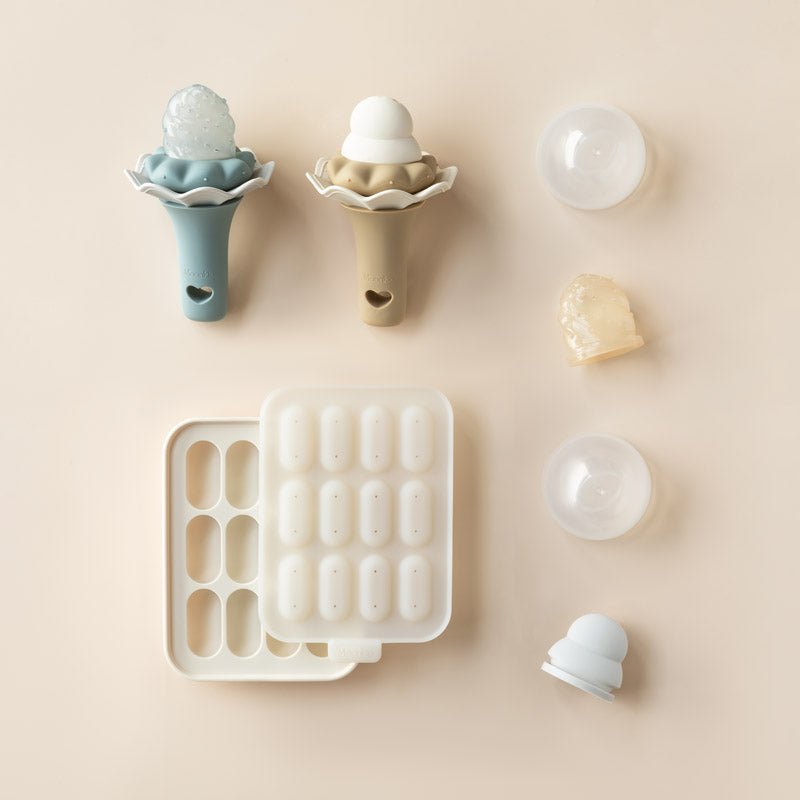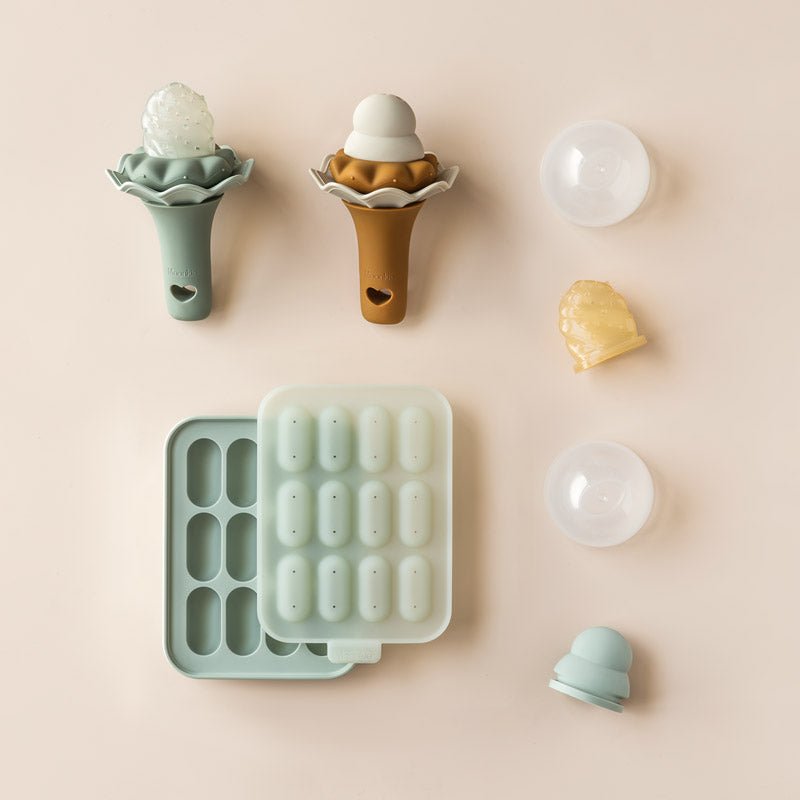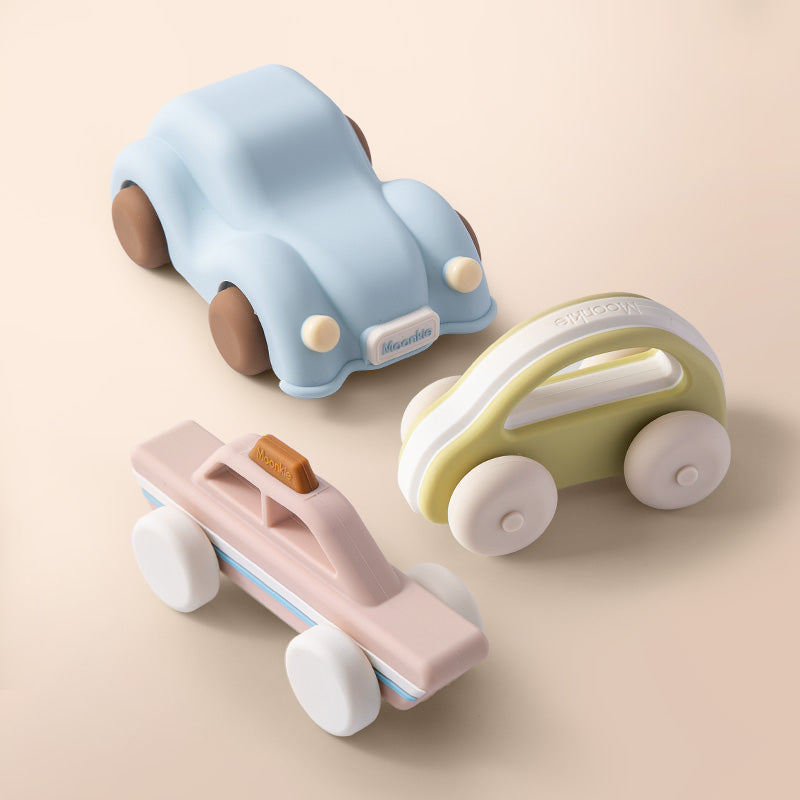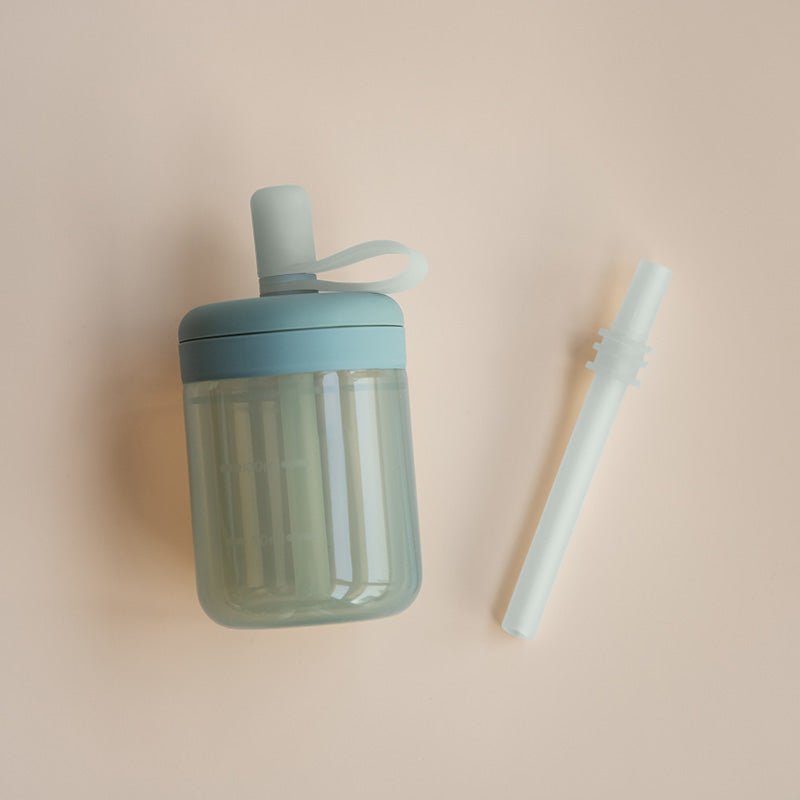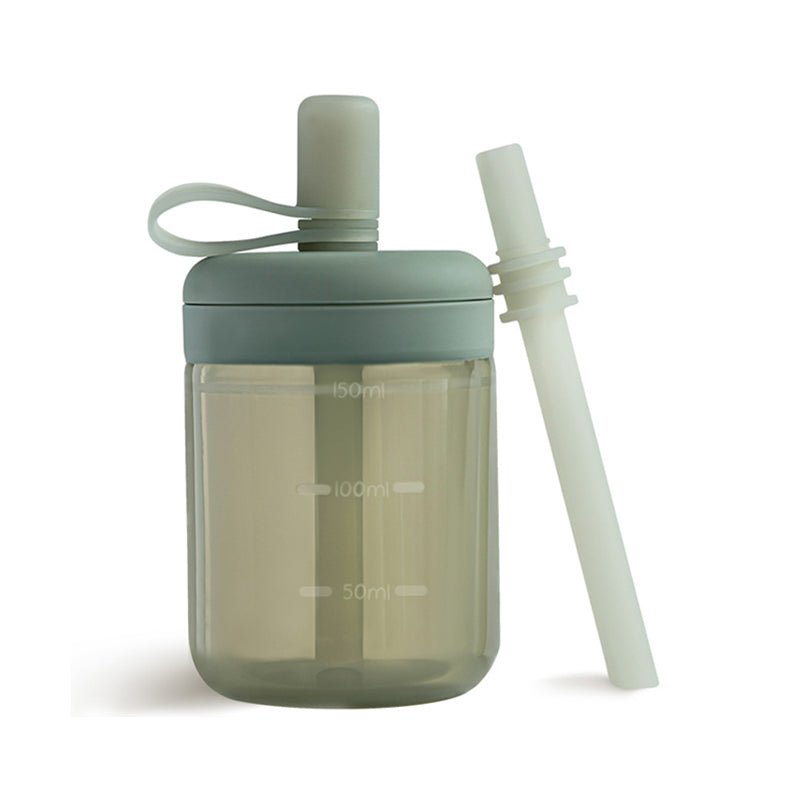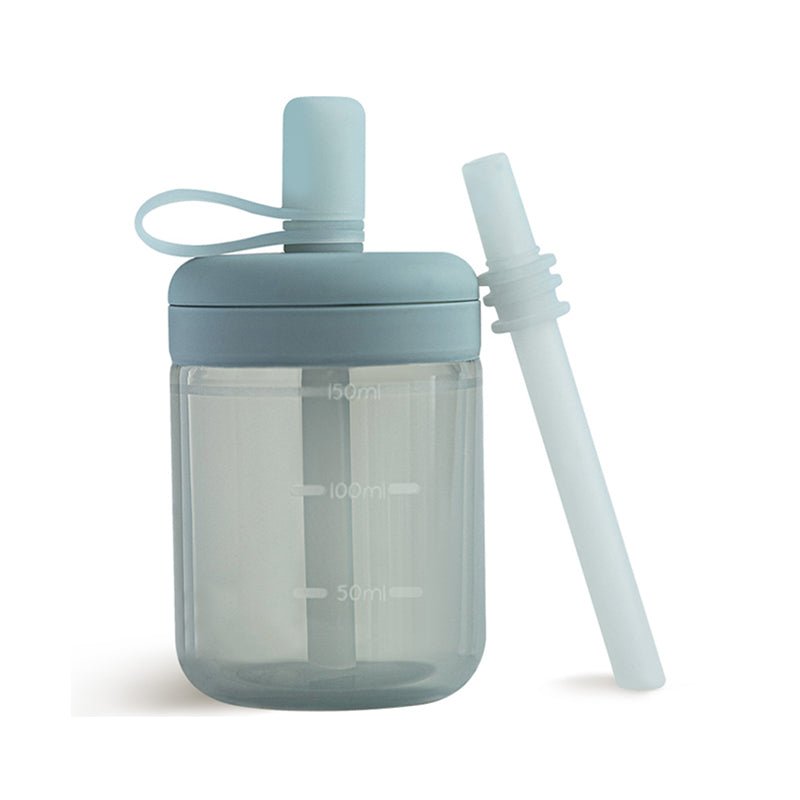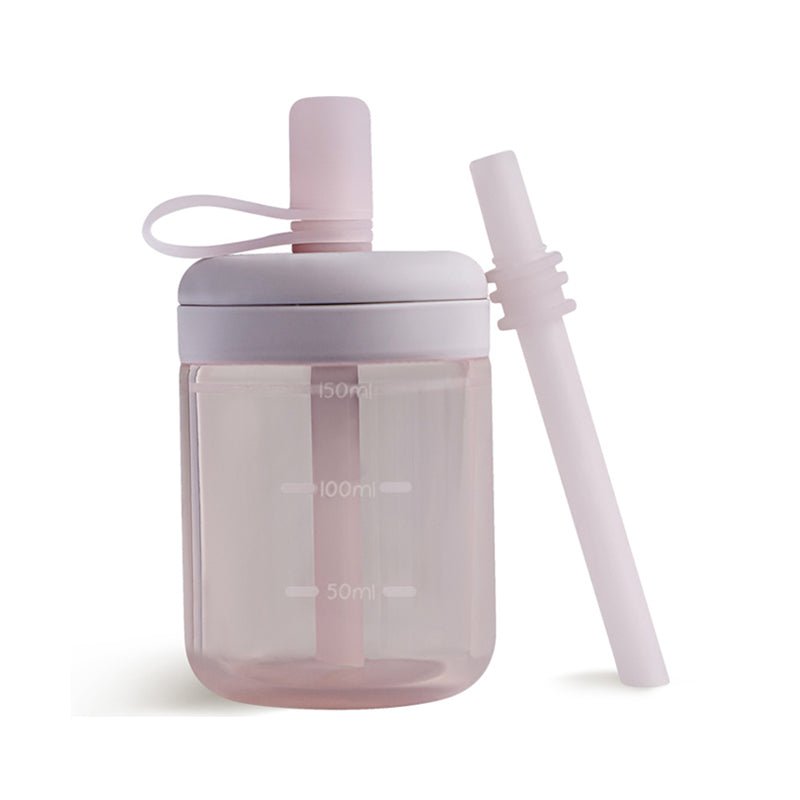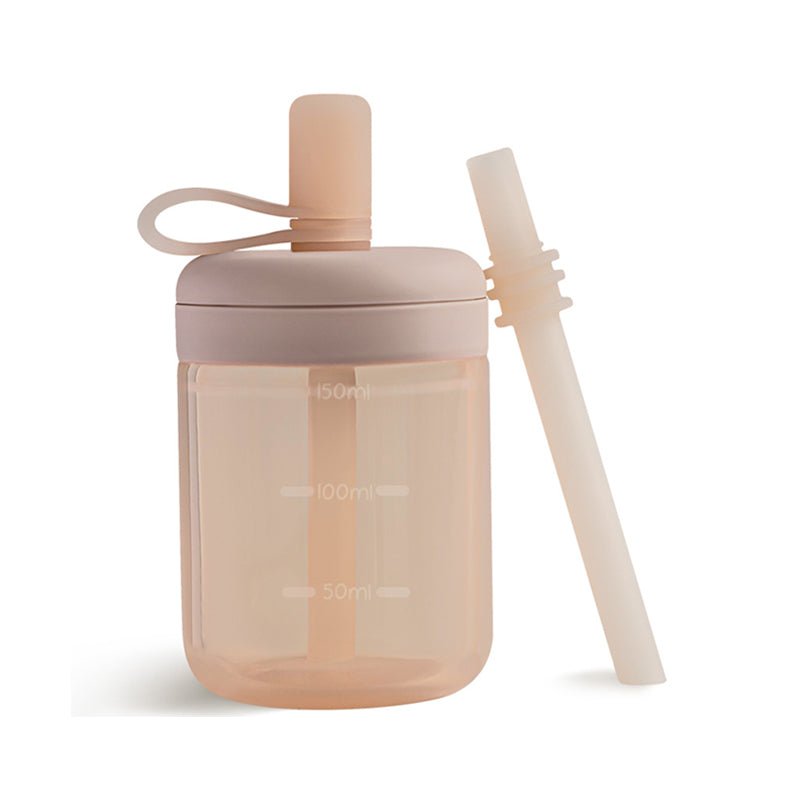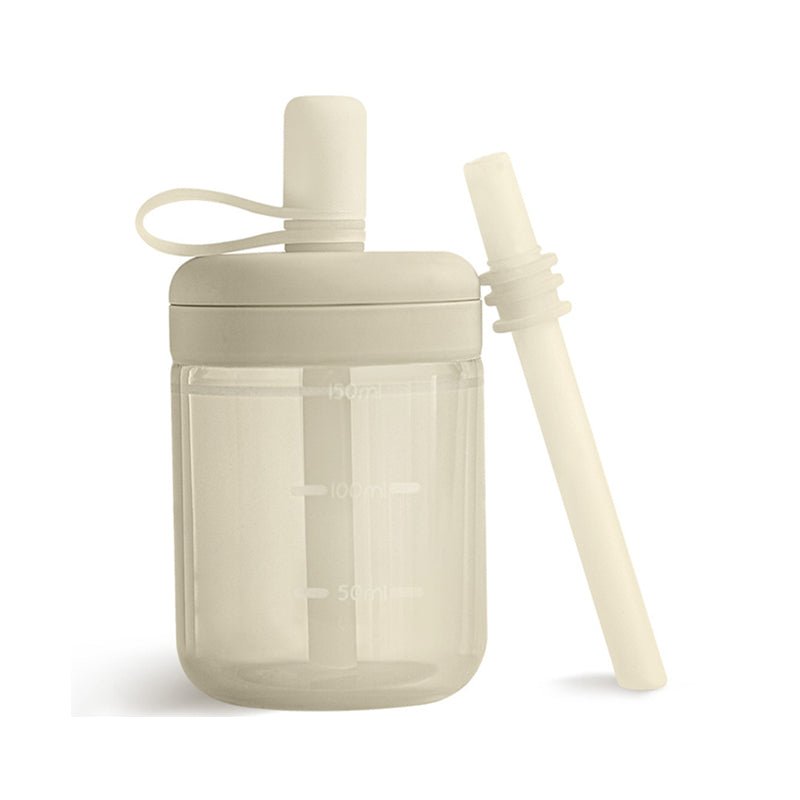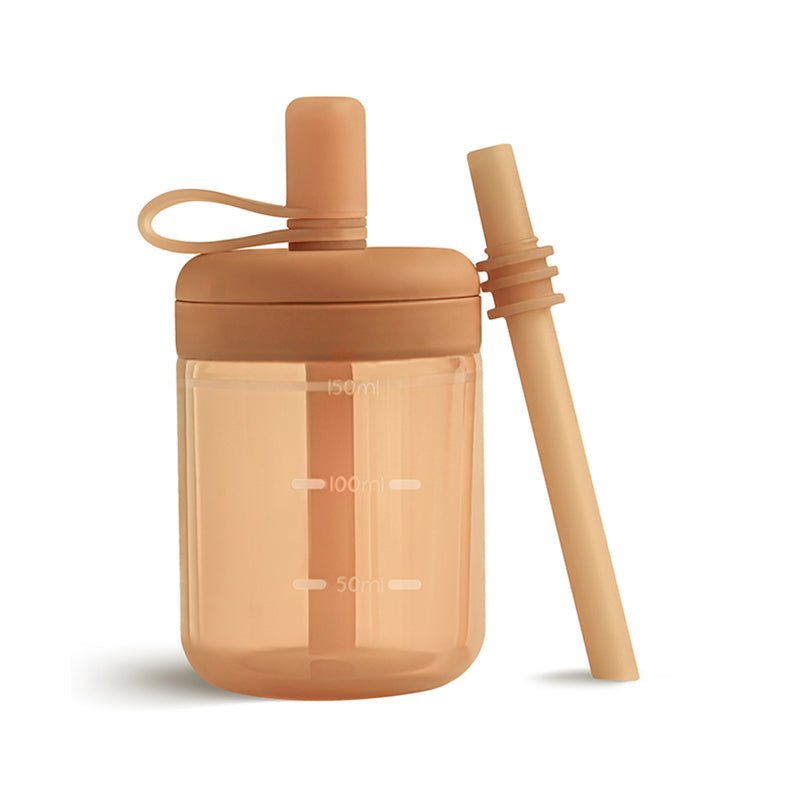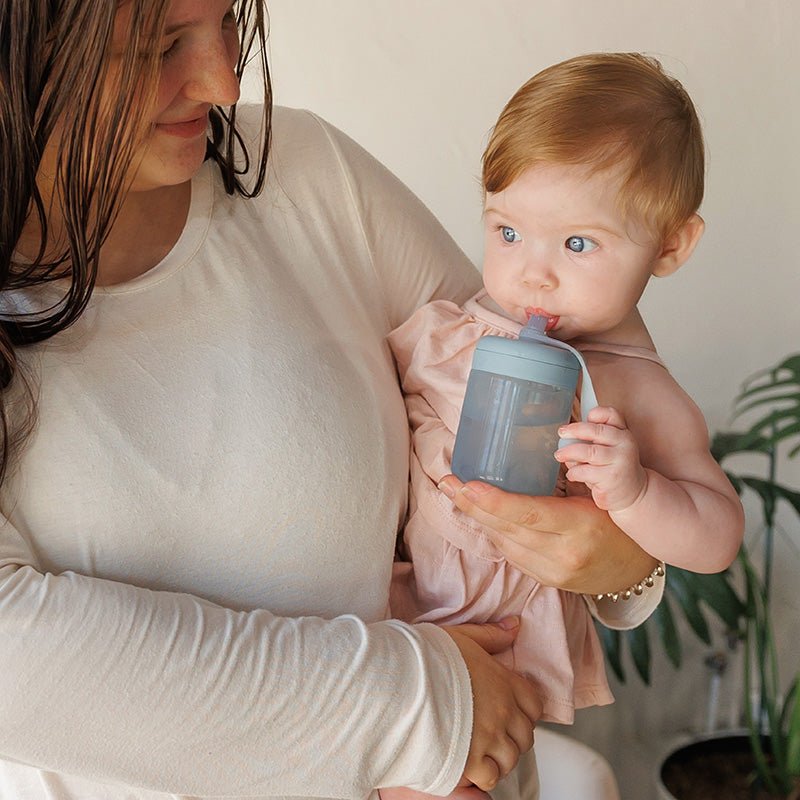In the toddler years, your little one's body is far more robust and able to handle illness. Odds are that you are less likely to hover over your sick toddler's bed for fear of her choking on mucus. Woohoo! However, your toddler likely still gets sick--a lot. The best thing you can do is be prepared for when it happens!
First-time parents quickly realize that toddlers get sick often, even if they don't attend daycare! However, knowing what to expect beforehand and having the necessities on hand will make managing your sick toddler far easier. Understanding when your little one needs to go to the pediatrician or ER is vital!
I am not a doctor, so the answers to the questions below are linked to studies and articles you can read for further understanding. Creating a foundational understanding of the illnesses your toddler faces and how to treat them will help you ask your pediatrician more specific questions. Always consult your pediatrician about medical advice!
1. Which Illnesses Are the Most Common in Toddlers?
Your toddler (12 - 36 months old) is likely walking now and getting into everything. Who can blame him? He has simply watched everyone else getting into things for his whole life; now it's his turn! Unfortunately, hands-on exploration means exposure to lots of germs and viruses.
When I say "lots," I mean it! It's common for toddlers and preschoolers to have 8 to 12 respiratory infections, stomach bugs, and colds every year (source).
Here are the most common illnesses your toddler can get, but this list is not exhaustive (source):
the common cold
the flu
RSV
ear infections
sinus infections
Hand, Foot, and Mouth Disease
stomach bugs
Pink Eye (conjunctivitis)
Rotavirus
Whooping Cough (Pertussis)
When Should I Be Concerned About How Often My Toddler Is Sick?
You should be concerned about how frequently your toddler is sick if she catches more than 12 colds or viruses in a year, has a hard time overcoming infections, loses weight easily during illness, or doesn't seem to be growing at a normal rate (source).
You should talk to your pediatrician if any of these three symptoms are true, especially if your child requires multiple hospitalizations and rounds of antibiotics in one year.
Any family history of immune disorders should also be shared with your pediatrician to ensure testing happens before severe illness rather than discovering immune issues after a concerning bout of illness.
2. How Do I Know When a Runny Nose Is Becoming Something More Serious?
Runny noses on their own are not all that worrisome. However, a runny nose accompanied by high fever, diarrhea, or difficulty breathing is something worse that you should discuss with your pediatrician.

However, if your toddler has one or more of the following symptoms, go to the Emergency Room:
fast, shallow breaths sucking in the ribs and trachea and/or bluish lips
wheezing
not urinating for several hours and being unusually tired or sleepy
a fever of 102.2°F (39°C) or higher
a stiff neck
severe stomach pain
trouble waking and staying awake
inability to move
vomiting everything eaten or drunk for more than a day
seizures
loss of consciousness
blood in vomit or stool
quickly spreading rash
swelling lips or tongue, hives, and vomiting (allergic reaction)
Identifying something like RSV before it becomes dangerous enough to go to the ER is tricky. Read more in When It's More Than a Cold: RSV in Babies and Toddlers.
What Symptoms Should I Call the Pediatrician for but Not Go to the Emergency Room?
Some symptoms in a toddler need medical attention but are not urgent enough to warrant a hospital visit.
Such symptoms are:
lots of yellow or green snot
a persistent cough that has deepened to a chest cough
a rattly cough
pulling at or itching an ear for a day or two
complaining about an earache
a low fever (101°F or less) for more than two days
vomiting some or all food for more than a day
Pink Eye
lots of crust around the eye after sleeping for more than a day
diarrhea for more than a day
red spots on palms, feet, and back of the throat
looking and acting very sick for more than two days
Don't limit yourself to this list! If you are concerned about your little one's health and behavior, it is better to be safe than sorry. Call your pediatrician to ask about your toddler's symptoms.
3. What Medical Supplies Should I Have at Home for My Toddler?
A first aid kit is necessary for all those bumps and bruises your toddler gets! Treating scrapes, cuts, carpet burns, burns, and other wounds right away is the first step toward avoiding more serious health issues.
Washing hands, eating various healthy foods, drinking plenty of water, and sleeping well are all crucial to maintaining your health and your toddler's! However, viruses and illnesses happen, so having a few things on hand will help you avoid taking a sick toddler to the store.
stethoscope
thermometer
puke bucket or bowl
hand sanitizer
extra pull-ups and wipes
mattress protector
saline spray
NoseFrida (to manage excess mucus)
pulse oximeter
Aquaphor
aloe gel
calamine lotion (itchy bug bites)
unscented soap
toddler cough syrup (like Zarbee's )
Infant or Children's Tylenol (fever reducer)
steamer (to soothe coughs)
chest rub (to soothe coughs)
4. Can Toddlers Have Antibiotics?
Now and then, your toddler will have a cold that settles in the chest and becomes a respiratory infection. Or she will develop an ear or sinus infection. If the infection is bacterial, your pediatrician will probably prescribe antibiotics.

However, if the infection is viral (like common colds, RSV, bronchiolitis, the flu, and others), antibiotics will not help. These infections must be managed with fluids, fever tempering, and lots of love.
Are Antibiotics Bad for Toddlers?
No, antibiotics are not bad for toddlers. Certain antibiotics are safe for your little one when needed, however, antibiotics can have side effects, like upset stomachs or diarrhea.
Taking antibiotics more than a few times in the early years can disrupt your child's gut microbiome (the good bacteria necessary for breaking down food into nutrients) and spread more resistant pathogens (source).
So, be sparing with antibiotic use and talk to your pediatrician about ways to help your little one before an illness morphs into an infection that requires antibiotics.
5. Can Toddlers Have Over-the-Counter Medicine?
Yes, but only over-the-counter medicine rated for your toddler's age and weight is safe. Each annual checkup your child attends is an opportunity to ask for a dosing chart for common toddler over-the-counter medications.
Your little one develops rapidly through to about three years old, so anything he eats or drinks can affect quite a bit. Therefore, you shouldn't dole out Infant's Tylenol for every ache or pain.
Infant's Tylenol, in particular, is excellent for reducing a fever. But, you shouldn't use too much, as the acetaminophen in it can harm the liver or your child's neurodevelopment (source).
Everything has a cost, especially medication. Medication is more about balancing the benefits and risks of letting the illness continue versus risking potential side effects. Do your research, ask questions, and make full use of non-medicinal remedies, like drinking fluids, hot showers, and steamers first.
As always, ask your pediatrician for a list of acceptable over-the-counter medications, cough syrups, vitamins, and their respective doses for your little one's age and weight.
6. Which Home Remedies Help My Toddler Cough Less?
Coughing is miserable for toddlers because it interrupts their sleeping, eating, and drinking habits. Thankfully, home remedies exist to help ease your little one's tired frustration.
Before bed, or whenever your little one gets worked up into a coughing fit, put him into a hot shower with a few drops of peppermint or eucalyptus oil on the floor. The warm water and steam help loosen mucus, while the essential oil helps open airways and relieve congestion (source). A little goes a long way!
For sleeping, prop your toddler up with extra pillows so she doesn't sleep flat. Being propped up allows the mucus to drain down the back of the throat instead of pooling there. Adding a steamer to the room helps make the air less dry and tickly for irritated throats and sinuses.
Zarbee's Baby Chest Rub is wonderful for littles under 2 years old, and their normal chest rub works for 2 years old and older. Oddly enough, putting the rub on the bottoms of my toddlers' feet and covering them with socks seemed to help with nighttime coughing!
Warm teas (like lemon, ginger, and honey) and chicken soup are soothing and genuinely helpful to throats sore from coughing. They help with nutrition and hydration, too (source)!
7. Which Home Remedies Should I Avoid Giving My Toddler?
Home remedies you should avoid giving your toddler are aspirin for fever, tons of honey (totally avoid giving honey to a baby less than 12 months old), decongestants, alcohol, and undiluted essential oils put directly on the skin or in bath water.
Essential oils are particularly easy to use wrongly because so much conflicting information exists online. Generally speaking, never use them in direct contact with your toddler or for internal use.
Hot teas rated as safe for toddlers use dried plant leaves, not the far more potent plant oil. Some people like to mix essential oils with a carrier oil for personal use, but this should be avoided for toddlers since they could ingest the oil, get it in their eyes, or be overpowered by it.
8. How Can I Help My Toddler Sleep With a Stomach Bug?
Stomach bugs are awful in toddlerhood because your little one cannot fully express what she feels and may want to push back against everything you do to help ease her pain.

Helping your toddler sleep begins with ensuring there isn't too much on the stomach. Getting in a few small sips before resting helps with hydration and stomach cramps. A couple of plain saltine crackers or part of a popsicle may also sit well enough to make sleep possible.
But if your little one has a particularly nasty bug that makes her throw up every little sip, you'll have to get your toddler to sleep without anything on the belly. You can do this by doing some chill activities together that your toddler likes, such as reading books, playing with Legos, or watching a favorite TV show.
Making the room cool, quiet, and dark can help your little one sleep. Some kids prefer curling up on the couch with a blanket. I find that listening to an audiobook while playing quietly together puts my sick little ones to sleep faster than anything else. The distraction from feeling bad helps them tremendously.
While your toddler sleeps, keep a bucket or large bowl and a washcloth nearby in case she wakes up to vomit. Pull-ups and mattress protectors are also incredibly helpful during a stomach bug.
9. Are There Foods or Drinks I Should Avoid Giving My Sick Toddler?
Most of us grew up with some kind of comfort food during sick days. Whether that was buttered toast, chicken soup, saltines, sweet tea, or animal crackers, we all feel drawn to those same comforts when sick as adults! But are there foods or drinks we should avoid giving our sick toddlers?
If your toddler eats something small and keeps it down while sick, that is a win! However, snacking on sugar, carbs, and empty calories all day is not ideal.
I teach my kids that what goes in feeds either the "good guys" helping our bodies or the "bad guys" harming our bodies. So, fruits, veggies, simple carbs, dairy, and protein are all excellent choices to help our bodies fight the "bad guys" and recover.
But snacking on fruit snacks, jelly, Sprite, and other sugary foods feeds the "bad guys." It's okay to have some now and then (as long as you meet other nutrition needs), but making wise food choices will help fight the illness.
Surprisingly, my kids grasped this oversimplification well and have actively chosen healthy food for their "good guys" ever since. Of course, I allow the not-so-healthy options to encourage eating something, but they understand that they should eat healthier foods to balance less healthy choices.
That logic won't work with very young toddlers or toddlers who are super picky eaters, but it helps some kids!
10. Should I Quarantine My Sick Toddler?
Whether to quarantine your sick toddler comes down to what your toddler has and who is around. If your toddler is sick, it's good for your toddler and thoughtful for others to keep your toddler home from daycare, church, preschool, play dates, birthday parties, and other get-togethers.
Little ones share germs easily, so by the time your toddler shows symptoms, you and your other children are likely already exposed. However, sequestering your little one from younger siblings is still a good idea, especially if he has a fever.
If you decide to quarantine (or attempt to quarantine) your sick toddler from the others, make time to spend with your sick one. Yes, you may get sick doing this, but your little one needs your love, presence, and reassurance that everything will be okay and that this illness isn't her fault.
Promoting and practicing frequent handwashing, wiping down surfaces, and not talking close to each others' faces is crucial for homes with multiple kids.
You should be prepared in case your baby gets whatever your toddler has. Read 15 Questions First-Time Parents Ask About Common Illnesses and Their Baby to get ready!
11. How Do I Keep My Toddler Hydrated When Sick?
Staying hydrated is vital to making it through illness and recovering well, but it is difficult to do when your little one is vomiting and suffering from diarrhea.
Offering fluids frequently in tiny amounts is the best way to go. When my toddlers were fussy and refusing fluids because they felt miserable, I used a syringe to give them "tiny drinks."
I would put different drinks in the syringe each time to make it more fun for them. I would offer warm broth, tea, water, juice, and Pedialyte; it always worked!
How Do I Know When My Toddler Is Dehydrated?
Dehydration is serious in anyone, but especially toddlers and babies. Lack of hydration during these stages of rapid development can quickly result in life-threatening conditions, like electrolyte imbalances, neurological issues, seizures, coma, or kidney injury (source).
The longer a little one is dehydrated, the more damage her body sustains. So, getting ahead of dehydration is critical! The first signs of dehydration in toddlers are the following:
urinating less than usual
no urination for more than three hours
dark-colored urine
dry mouth and lips
no tears when crying
sunken eyes
rapid heartbeat that doesn't relax
rapid breathing
cold or clammy skin
One or more of those symptoms combined with lethargy, irritability, poor concentration, or difficulty waking up warrants a trip to the hospital.
12. Does Cold Weather Make My Toddler More Likely to Get Sick?
No, cold weather does not directly make your toddler sick. However, it can make getting sick easier because some viruses, like the common cold, the flu, and RSV, are more common in cold weather (source).

Viruses can effortlessly spread from person to person when we spend a lot of time indoors together. Moreover, dry, cold conditions with very little sunlight are perfect for some viruses hanging around in the air from a cough or sneeze.
That cold dryness also dries up the mucus in your nose and throat, making it less challenging for viruses to get inside (source).
Aside from viruses, not being properly bundled in cold weather or getting damp and cold can bring your toddler's body temperature down enough to cause issues like susceptibility to illness, frostbite, or, if he gets cold enough, hypothermia (source).
13. How Hot Is Too Hot for My Toddler's Fever?
A fever of 102.2°F (39°C) or higher is concerning for a toddler (source). If she has a fever this high and acts totally normal, call your pediatrician for pointers. The pediatrician will likely suggest the appropriate dose of Infant Tylenol and fever management at home.
However, if your toddler's fever is that high and she acts lethargic or doesn't wake up easily, or if the fever persists for more than 24 hours, take your little one to the Emergency Room.
How Can I Regulate My Toddler's Temperature Without Medicine?
Low fevers can most likely be managed without medicine, but you must understand what the fever is doing. Fevers are the body's attempt to "burn out" an infection or illness. In such cases, managing a fever without medicine can be a way to work with the body.
However, you must be careful to avoid letting the fever get too hot. You can temper a fever with a cool bath or shower (avoid cold showers and baths because they drop your little one's body temperature too much and too quickly), cool washcloths, plenty of fluids, and removing clothes to the diaper or a light shirt.
Fevers can also flare up with inflammation or heatstroke. If you suspect either of these, go to the Emergency Room.
Again, if the fever persists for more than 24 hours (and especially 48 hours), call your pediatrician.
14. When Can My Toddler Go Back to Daycare After Being Sick?
Your toddler's daycare will have guidelines on this, but most daycares ask you to keep your child home for at least 24 hours after the stomach bug or fever passes.
If your toddler has recently had a respiratory infection, the flu, or some other more serious and extremely contagious illness, ask your pediatrician about when you can let your toddler return to daycare. Sharing is not always caring!
15. Is Extra Screen Time Okay for a Sick Toddler?
Why not? It's next to impossible to keep your sick toddler still so she doesn't work up her cough or stomach aches! A screen will help achieve this.
But if your family doesn't use screens often or your toddler is more interested in books and toys, then encourage those! Screens are not necessary—they are a tool.
In a Nutshell
Sick days are not fun for anyone, but they are particularly challenging for toddlers. Toddlers typically don't have the language level to explain exactly what they feel or to regulate their emotions--they just want to play! When an illness gets in the way, your little one needs you for comfort and care. Hopefully, your sick days together will be sweet!

